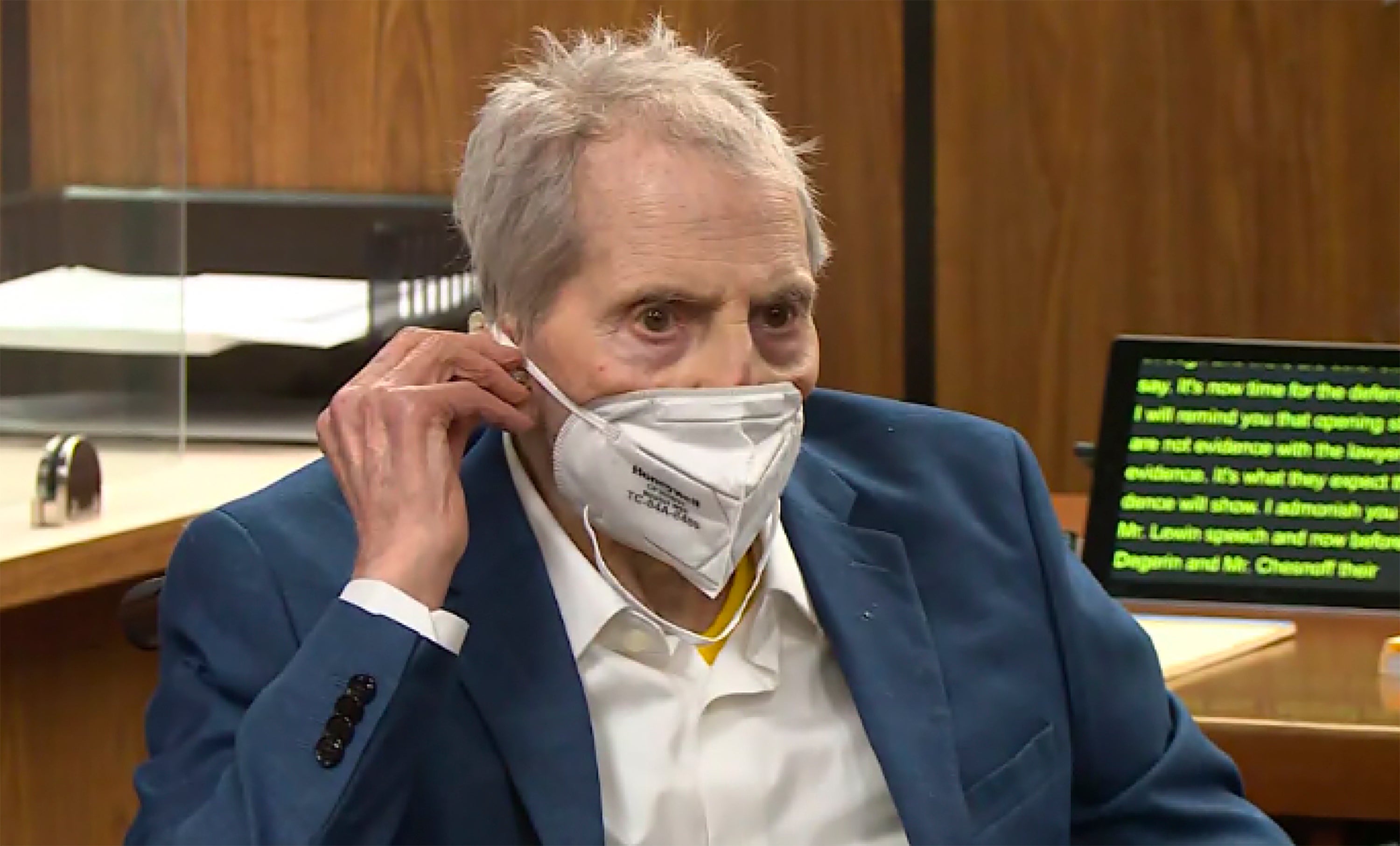In rare move for murder defendant, Durst expected to testify
New York real estate heir Robert Durst is expected to take the stand at his Los Angeles County murder trial

Your support helps us to tell the story
From reproductive rights to climate change to Big Tech, The Independent is on the ground when the story is developing. Whether it's investigating the financials of Elon Musk's pro-Trump PAC or producing our latest documentary, 'The A Word', which shines a light on the American women fighting for reproductive rights, we know how important it is to parse out the facts from the messaging.
At such a critical moment in US history, we need reporters on the ground. Your donation allows us to keep sending journalists to speak to both sides of the story.
The Independent is trusted by Americans across the entire political spectrum. And unlike many other quality news outlets, we choose not to lock Americans out of our reporting and analysis with paywalls. We believe quality journalism should be available to everyone, paid for by those who can afford it.
Your support makes all the difference.New York real estate heir Robert Durst is expected to take the stand in his own defense in a Los Angeles County court Thursday in a rare move considered extremely risky for a defendant in a murder trial.
Durst is charged with killing his best friend Susan Berman who was shot and killed in her home in 2000.
Prosecutors are set to resume their cross-examination of the only other defense witness, false memory expert Elizabeth Loftus to begin the day, and should defense attorneys go through with their plans to call the 78-year-old Durst, his testimony will follow, and should last several days.
The bold move worked once before.
Durst's attorney, Dick DeGuerin, also represented him in his 2003 Texas murder trial, when he put Durst on the stand. Durst was charged with killing his Galveston neighbor Morris Black while in hiding there after Berman's killing. He said Black was accidentally killed in a struggle after entering Durst's apartment with a gun. He admitted to dismembering and disposing of Black's body. The jury acquitted him of murder.
Prosecutors in the California trial have also been allowed to present evidence from the Texas case, and evidence that Durst killed his wife, who disappeared in New York in 1982. Kathie Durst’s body was never found, but she has been declared legally dead. Durst has never been charged in connection with her disappearance, and has denied having anything to do with it.
He has also denied killing Berman, who prosecutors say was about to talk to police about Durst's involvement in his wife's disappearance. Durst's attorneys have said that he found her body, panicked, and fled to Texas, sending a letter to police that read “CADAVER” with Berman's address.
Durst will likely take the stand in the county jail attire he's been wearing in court for the past several weeks, which his attorneys said was necessary because severe health problems make him unable to stand and change into a suit.
Durst has bladder cancer and a urinary tract infection. He has been in a wheelchair and has a catheter inserted. His hair is shaven short because fluid had to be drained from his brain.
He has looked far more frail than he did in his notorious interviews for the 2015 HBO documentary “The Jinx," in which he made several seemingly damning statements that were played for jurors at the trial. Durst was arrested in New Orleans on the eve of the airing of the final episode.
His lawyers have sought delays and a mistrial over his health troubles, but Judge Mark E. Windham has rejected them all, expressing sympathy for Durst's state but emphasizing that jail doctors have declared him fit for trial.
Windham has been determined to finally finish a trial that took years to begin and was paused for more than a year just after it began because of the coronavirus.
The Fifth Amendment to the U.S. Constitution and its protection against self-incrimination keeps criminal defendants from having to testify at their trials. They may take the stand if they choose, but it's considered exceedingly risky to put them at the mercy of cross-examining prosecutors, and defense attorneys rarely do it.
— Follow AP Entertainment writer Andrew Dalton on Twitter at https://twitter.com/andyjamesdalton